For the second week of the Read 52 Books in 52 Weeks challenge, I read Good Citizens - Creating Enlightened Society by Thich Nhat Hanh. This ties into the first spiritual practice that I focused on during the first two weeks of January: Attention.
I thoroughly enjoyed this book and found so many ideas that would enhance my life and how I relate to others. As I'll be doing for this year's challenge and spiritual practices, I'm noting parts of the book that I want to remember:
- A Buddhist contribution to global ethics...is based on observing and understanding the world with mindfulness, concentration, and insight. It [is] an awareness of...the interconnectedness of of all things.
- Practice mindfulness wherever we are, whatever we are doing, at any time.
- We practice this way not only for ourselves but also to preserve ourselves so that we are able to help others and be connected with all life.
- When other people suffer less, we suffer less. And when we suffer less, other people suffer less.
- Being mindful means...[to] stop and observe deeply what is happening in the present moment...we can see the suffering that is inside us and around us.
- When we have the characteristics of someone who is virtuous, we don't make people suffer. This kind of virtue offers us a guideline, a way of behaving that doesn't cause suffering to others or to ourselves.
- Practice generates mindfulness, concentration, and insight.
- To do something effectively and ethically, we need to be our best selves in order to be able to handle the suffering.
- When we bring out attention to our in-breath and our out-breath, we stop thinking of the past; we stop thinking of the future; and we begin to come home to ourselves.
- If we don't go home to ourselves, we can't be at our best and serve the world in the best way. We have to be ourselves to be our best.
Helping Betty do the lattice work on a pie while
two other residents at the nursing home work on other pies.
(Taken on February 9, 2013.)
- We have to acknowledge our bodies first because tension and suffering accumulate in the body.
- We can't do our best if we don't know how to release the tension and the pain in ourselves.
- There is suffering in this world - birth, sickness, being separated from those we love, having to be with those we hate, poverty, disease, violence, hunger, despair, worry, depression, old age, and death....There is suffering inside us and around us- near us and on a global scale.
- We have to observe deeply what is happening around us before we can understand its causes and hope to transform it.
- Each of us has some amount of suffering, but we handle it with beauty.
- Stress, tension, and fear can accumulate in our bodies and minds and cause us to suffer.
- There is great joy in us, even in those things that contain suffering. For example, the Buddha saw that old age contained suffering. But I'm old and I'm so happy, he said.
- Even death is not exactly suffering. Death is also part of life. We know that many cells of our bodies are dying at every moment, so that new cells can be born. So death takes place all the time. Without death, birth isn't possible.
Dad and Mom's hands taken
two days before Dad died.
(Taken on January 3, 2012.)
- If we look deeply, we see that we are not really dying; we will continue in other forms. Changing from one form to another may be something joyful.
- You may choose not to suffer, even if pain or sickness is there. How you see life and your particular situation depends on your way of looking.
- When we have some pain, whether it is physical or mental, we can recognize it as suffering, but we don't need to exaggerate it.
- We have to produce peace in ourselves and reduce the suffering in ourselves first, because we represent the world. Peace, love, and happiness begin with ourselves. The suffering we see out in the world is reflected in the suffering, fear, and anger inside. So when we take care of ourselves, we are taking the first step toward taking care of the world.
- Compassion and love are born from understanding.
- Understanding requires understanding the difficulties, frustration, and pain of the person you lvoe. If you have already understood your own pain, it will be much easier to understand the pain of the other person.
- The path of suffering is the...path of wrong view, thinking, speech, actions, livelihood, diligence, mindfulness, and concentration.
Tomato and chickpea salad.
(Taken on September 11, 2012.)
- If it is good food, healthy food, then there will be no problem, there will be well-being. If it's not appropriate, then we can become ill.
- Mindful consumption of edible food also affects how we shop. Mindfully shopping at the grocery store or marketplace means you know what to buy and what not to buy. We can choose healthy food. Mindful consumption affects the way we cook.
- Merely by the way we eat, we can help preserve our planet - if we know how to eat properly and in such a way that can help us cultivate compassion.
- Over 40,000 children die every day because of the lack of food or the lack of nutrition. Yet in many countires in the West people waste a tremendous amount of food. We use the cereal we grow to make alcohol and feed livestock. We want to eat chicken, pork, and beef, but in order to make a pound of meat we have to use ten to twenty times as much cereal. Yet the people in the world don't have enough grain, rice, and corn to eat. So when we look deeply at our piece of meat, we know that it has been made from huge amounts of grain that could have been used to save people who are dying from hunger and malnutrition.
- Let us eat in such a way that we keep our compassion alive, reduce the suffering of living beings, preserve our planet, and reverse the process of global climate change.
- Depending on the content, consuming television, books, films, the Internet, and conversations can be either healthy or toxic.
- If we listen to gossip, judgment, and insult, then we are consuming these things.
- If what we consume fills us with irritation, anger, or craving, then it creates more irritation, violence, and suffering in the world.
- We may feel like we can't live without consuming certain sensory impressions. But if we try, if we have the space, the opportunity, and the supportive environment to consume health nutriments, our suffering diminishes.
- Examples of toxic volition are the cravings for fame, wealth, sex, revenge, and causing others to suffer. If you are motivated by that kind of desire, it's as if the desire has abducted you and your are being pulled in the direction of death.
- Collective consciousness: we are influenced by the ways of thinking of the people around us, and we consume the views of other people in many ways.
- Danger of craving is that we believe that the object of our craving is what we really want, that it is what can truly bring us happiness....When craving arises in us, we're no longer at peace. We're not satisfied by what we have and who we are.
- When the flame of craving is inside us, we no longer have the capacity to live happily right now in the present.
- Look deeply in order to see the true nature of the object of our craving. If we see it clearly, it will lose its appeal and then we will be free.
- When the roots of suffering are absent, we can be free and happy, and we can act ethically, motivated by our understanding and compassion.
Me feeding a giraffe a treat on
June 3, 2009.
- Choose to consume only food, sounds, sights, and environments that increase your happiness and avoid those that cause suffering. Choose to eat healthy food, focus our awareness on beautiful sights, listen deeply to those who use loving speech, and make a concentrated effort to be around those who bring us more happiness.
- Each of us has the capacity not only for great happiness but also for bringing great happiness to others.
- Only if we live ethically can we experience happiness and well-being.
- There is not true well-being that does not consider the well-being of others.
- Don't do anything when you're not awake and clear-minded. Wait until you're yourself and quite awake before you make a decision.
- Sometimes we choose not to tell the truth in order to help the other person to survive....We need deep understanding to be able to practice opening the door and making exceptions.
- When we do harm to the environment, we do harm to ourselves; when we do harm to another person, we do harm to ourselves.
- The ecosystem and we humans are not two different things. When we kill the ecosystem, we're killing ourselves.
A plant at the Como Conservatory.
(Taken on October 17, 2007.)
- If the minerals, plants, and animals no longer existed, humans would not exist either. We can only be here if they are here.
- When you produce a thought, it bears your signature. If it's a thought of compassion, forgiveness, or non-discrimination, you will continue beautifully into the future because that thought has your signature on it. It can heal you and heal the world.
- Whatever you have done bears your signature. Even when your body is no longer there, your thought continues.
- Select the kind of livelihood that can express compassion and understanding. You know how to make good use of your time to transform suffering into happiness and help people.
- Right Livelihood is the kind of occupation that will not make us suffer, and by which we can express our ideal of compassion and understanding. Even if it brings less money, it brings much happiness. You know you're on the right path, and that alone can make you happy. Right Livelihood brings well-being.
- When we practice Right Livelihood, we think about the impact of our work, not just its profitability.
There are four guidelines concerning Right Speech:
- Speak truthfully, without lies.
- Speak consistently, without saying one thing to one person and something else to another.
- Speak respectfully, without insult.
- Speak accurately, without exaggeration.
This following passage reminded me of the seniors at the nursing home with whom Sophia, Olivia, and I volunteer:
When we get old, we don't have all the excitement and stress that young people may have.
We have more maturity and we have learned from years of unskillful experience to be more skillful.
So old age is wonderful.
When you are a young person, you are like a young creek, and you meet many rocks, many obstacles, and difficulties on your way.
You hurry to get past these obstacles and get to the ocean.
September 9, 2010
But as the creek moves down through the fields, it becomes larger and calmer and it can enjoy the reflection of the sky. It's wonderful.
You will arrive at the sea anyway so enjoy the journey.
March 2, 2013.
Enjoy the sunshine, the sunset, the moon, the birds, the trees, and the many beauties along the way.
October 17, 2007.
Taste every moment of your daily life.
Old age can be very enjoyable.
Another interesting passage dealt with being ill:
Being ill is often the only way we take time to rest. When you are sick and you cannot go out, you have time to look deeply and spend some time with yourself. This may be one of the only times when you really lie down and spend some time coming home to yourself.
November 20, 2009.
Another passage I found intriguing was the thought of seeing with our ancestors' eyes. It made me reflect upon my father, my grandparents, my great-grandparents, and so forth who are all a part of who I am:
One day I looked outside at the mountain, and I saw so clearly that as I was looking at these mountains, all my ancestors - my father, my mother, my grandparents, all the lineages of human ancestors - were in me and were looking at the mountain together with me. We saw the beautiful dawn together and enjoyed a concert of color.
You can smile, and know that all of them are smiling your wonderful smile. You walk peacefully and all of the mare walking peacefully with you.
I thought of my dad when I read the following passage:
What you produce in terms of thought, speech, and action is your continuation, your karma. The dissolution of this body does not affect your continuation. Our actions will have an effect on us and on the world.
Your karma can assure a beautiful and a better continuation. If we know how to handle our thinking, speech, and action, we will continue to create happiness in the world, even when our body is no longer present in its current form.
I liked this thought:
So if we have lost someone who is very close to us, and we are grieving [his] death, we have to look again. That person is still continuing. We can do something to help [him] to continue more beautifully. [He] is still alive inside us and around us. Without our new way of looking, we can recognize [him] all around.
You have never lost [him]. [He] is still alive, very near you. [He] may bei na new form, different than in the past....[He] hasn't died; [he] hasn't disappeared. [He] continues in [his] new form. And we have to practice looking deeply in order to recognize [his] continuation, and support that.


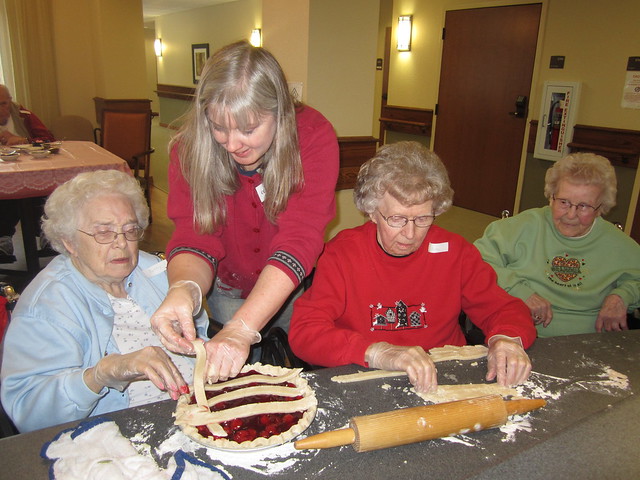
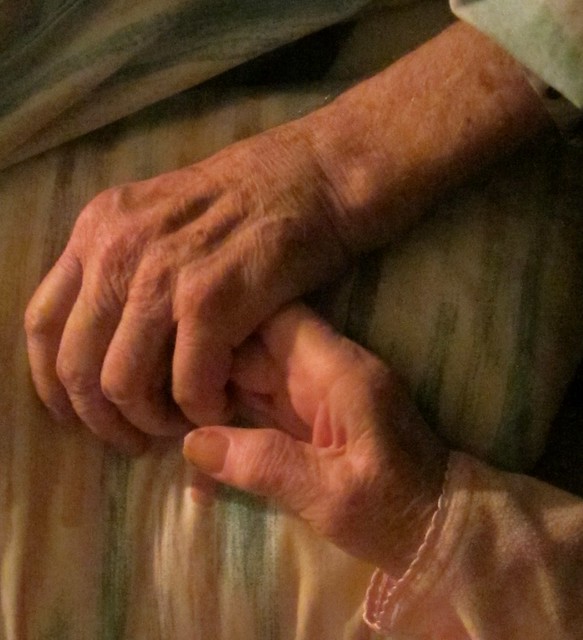

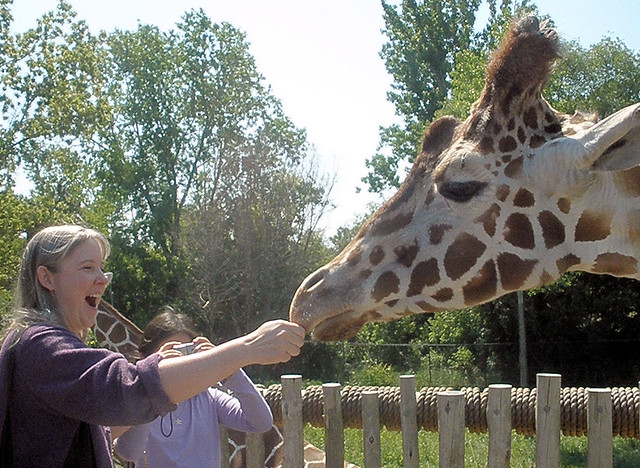
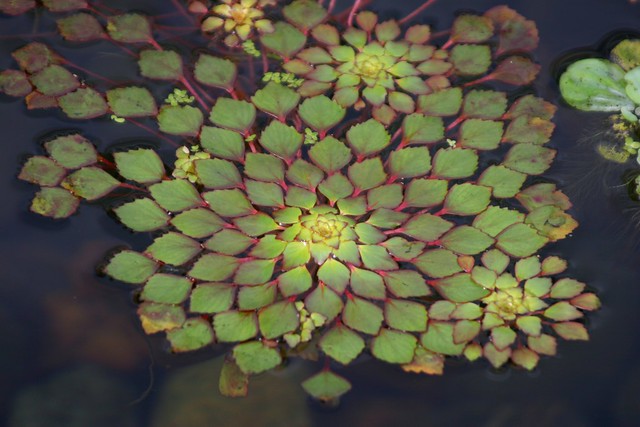

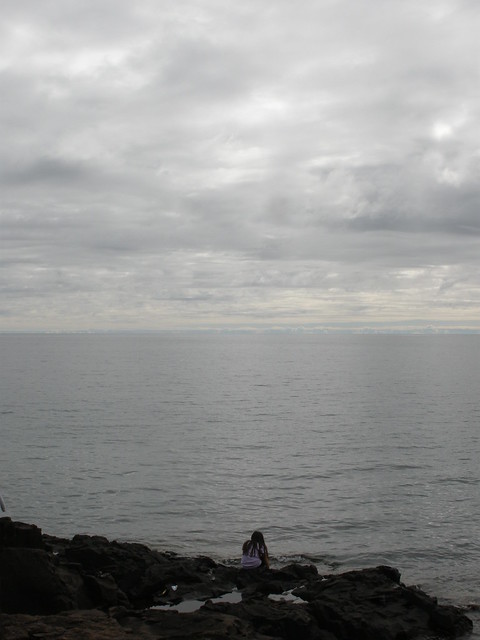



No comments:
Post a Comment
Thanks for taking time to read my blog and share your comments. Have a great day!